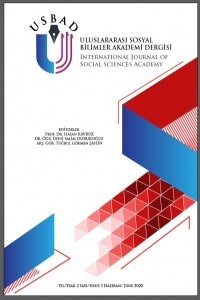
Uluslararası Sosyal Bilimler Akademi Dergisi
Yazarlar: Moldir SHOİMANOVA, Gülgül KANSEİTOVA, Zhumagul KANSEİTOVA
Konular:Dil ve Dil Bilim
DOI:10.47994/usbad.828342
Anahtar Kelimeler:Epopee,“The Way of Abay”,Translation,The source language,Target language,National identity
Özet: Translation is the transformation of the message of the source language to the message of the translating language. Abay’s prominent works were translated into different languages and presented to the world in a better way. Learning of Abay’s works in different languages is necessary for translators; because any kind of projects and reports are presented in Kazakh should be translated into Russian or English in our country. It is obvious that “Book of words” by Abay was first translated into Russian and only then it was translated into English, because when we did the comparison we noticed the identity of sentence structure in translations. Nowadays, there is no need to use a middleman language to render the original, because English is learnt widely in Kazakhstan and many native speakers are able to translate from Kazakh directly into English.